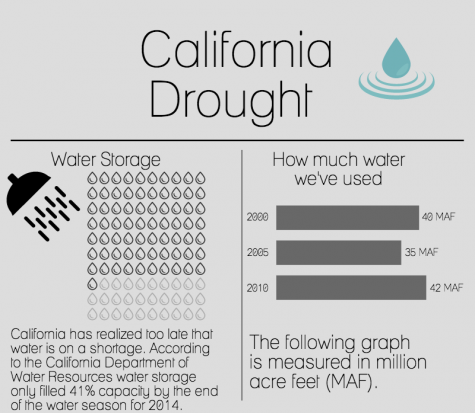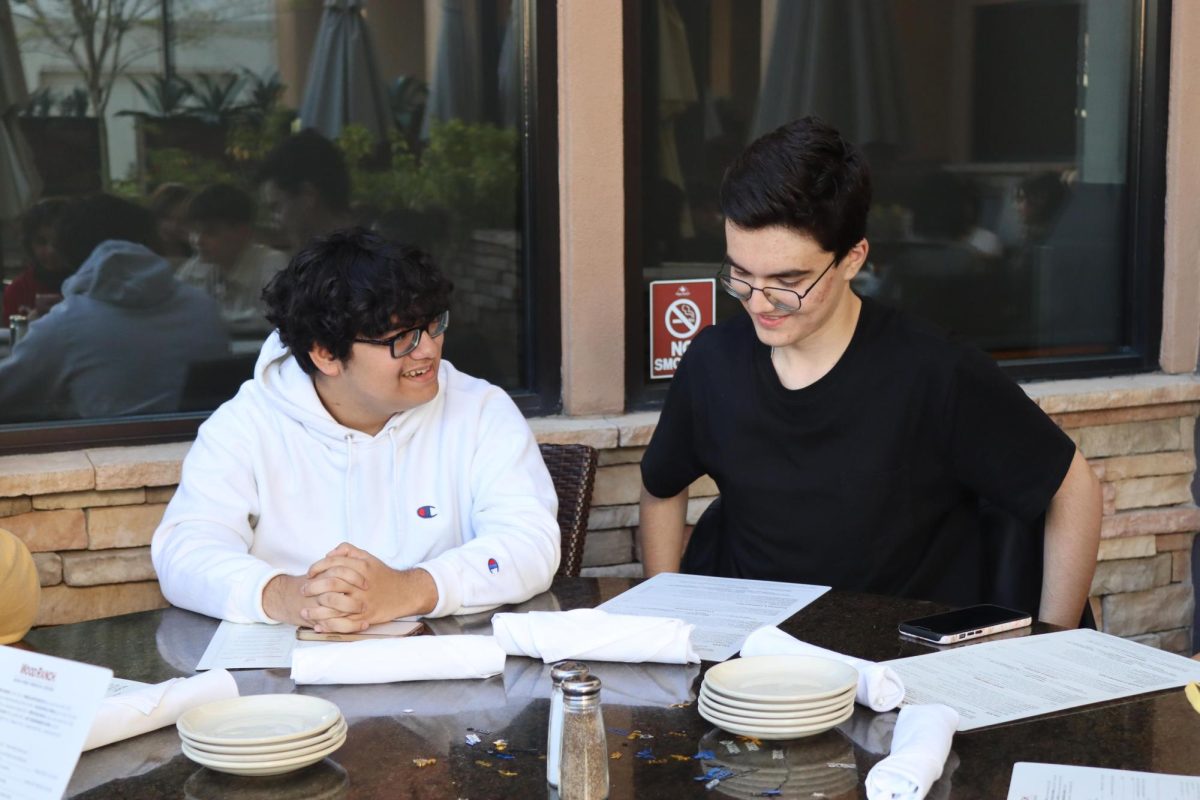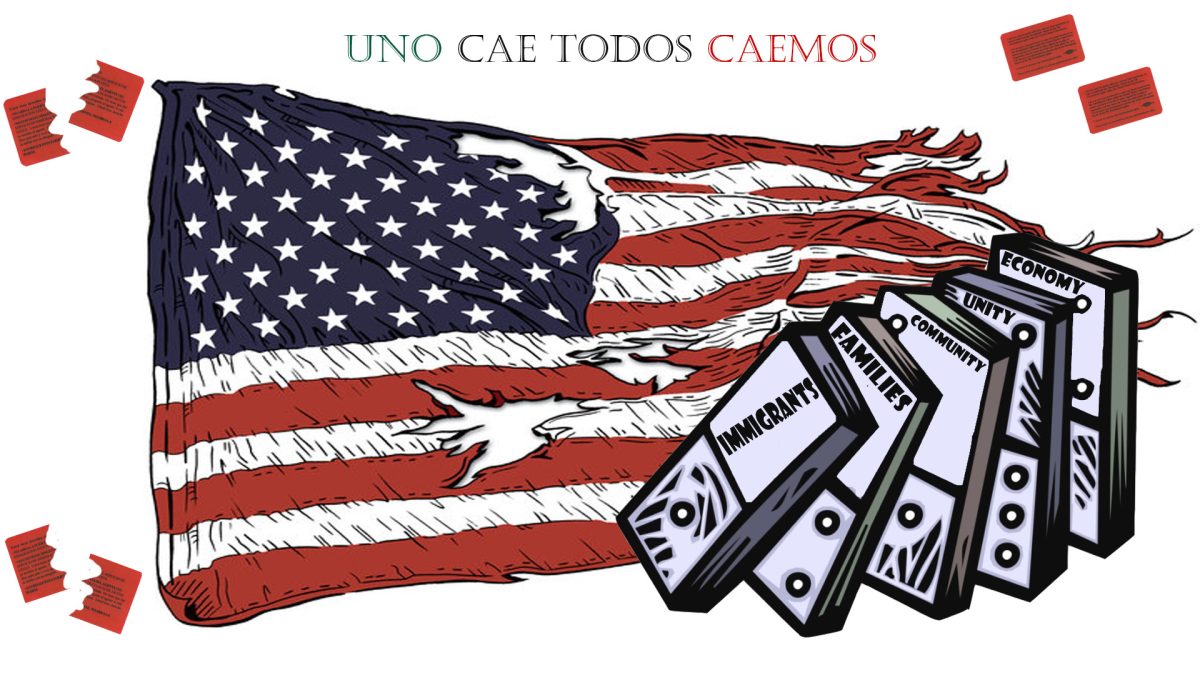Record drought takes hold of state
November 5, 2014
Like it or not, senior Imani Brown has had to adjust her lifestyle due to the state’s drought.
“It has because my dad makes me take shorter showers and we don’t use the dish-washer,” Brown said.
The drought that is widespread across California comes with consequences that teens are unaware of. Without water, crops will die off and food prices will rise. Farmers can’t feed their animals. This means no fruits and vegetables and even meat products.

Reservoir water levels are at a low percentage according to the a bi-weekly drought brief posted on ca.gov/ drought/ . Rain won’t help us. According to the National Weather Service’s Climate Prediction Center, if it does rain this winter it won’t be enough to end the drought. Weather stations all around the state have recorded rain levels and they’ve only come up to 60% according to an article posted on water.ca.gov/waterconditions/. Groundwater levels have decreased dramatically in places like Chico, Bakersfield and Tulare.
Mayor Eric Garcetti issued an executive directive on Oct.14 stating that the city will reach a 20% reduction of potable water by 2017 and a 50% reduction in purchases of water by the Los Angeles Department of Water and Power by 2024.
Besides Garcetti, Governor Brown has joined the fight for water. He said in a meeting at the Stanford University Water Policy Forum that during his next term water will be the top priority. He also trusts that Californian citizens will embrace the preservation of water just like we tackled the renewable energy hurdle.
Fines have been set in place to control wasteful water consumers. Up to $500 fine has been made to put a stop to the gallons of water lost to over usage of water when watering your lawn, not using a nozzle for your hose and even washing your car.
“I know in the beginning of August of the water restriction,” senior Christian Marroquin said. “We have enough but eventually more and more people will be deprived of it.”
But sophomore Viviana Rodriguez doesn’t seem too concerned about the drought. She describes clearly that she isn’t very concerned about it because it truly does not affect her.
“How does this affect me? California is in a drought, OK and? I have no trouble getting water,” Rodriguez said.
She explains that most teens aren’t concerned about water shortages because of a very reasonable factor: The drought has not affected them. At least not physically. They still have running water, unlike Tulare County which has to import water from other counties.
Academic administrator Doug Parker at the University of California division of Agriculture and Natural Resources agrees with Gutierrez. He also believes that the drought does affect everybody. Teens as well as others in the community.
“The drought impacts businesses, farms and the environment. These businesses are used by teens as well as others. I’m pretty sure teens like to eat food as well.” Parker said in an e-mail interview on Oct. 15.
Without water, plants won’t be able to grow, which would lead to a food shortage. This was also stated in the bi-weekly brief. There are some ways of helping such as following your scheduled water chart, planting drought resistant plants, placing a pool cover over your pool so the water doesn’t evaporate, running full loads for the dishwasher and washing machine and taking shorter showers. Teens are becoming aware of the effects of the drought.
Freshman Lesly Gutierrez disagrees. She is one of the few that understand that the drought is a serious issue. She believes that it does affect her and other teens. They may not see it but it is happening. She says that teens aren’t that concerned about the drought because they’re more caught up in social media or some just aren’t aware of the seriousness of the drought.
“I am concerned about the drought because there’s nothing I can do about it and that scares me,” Gutierrez said.
Kyrah Hunter contributed to this article.







